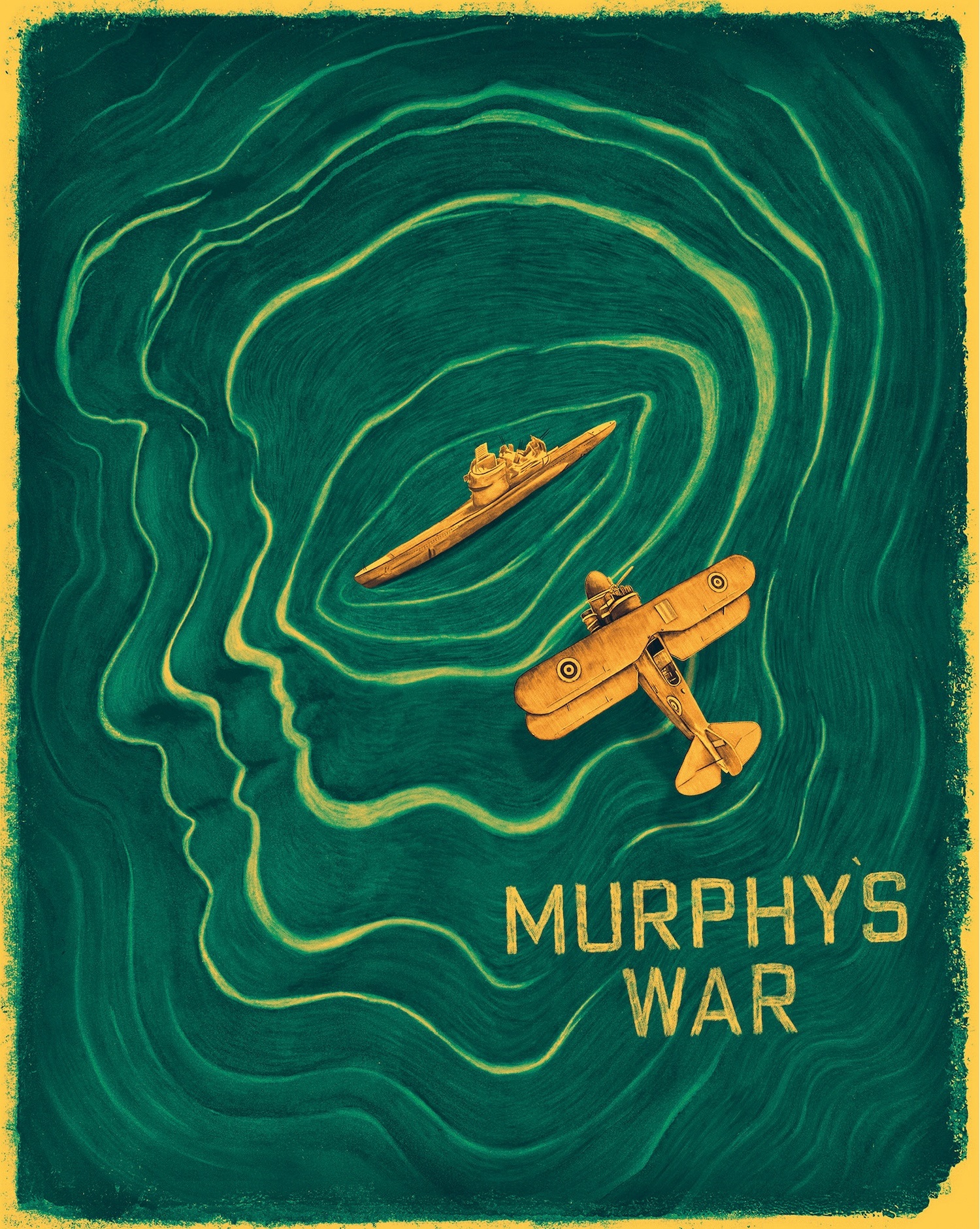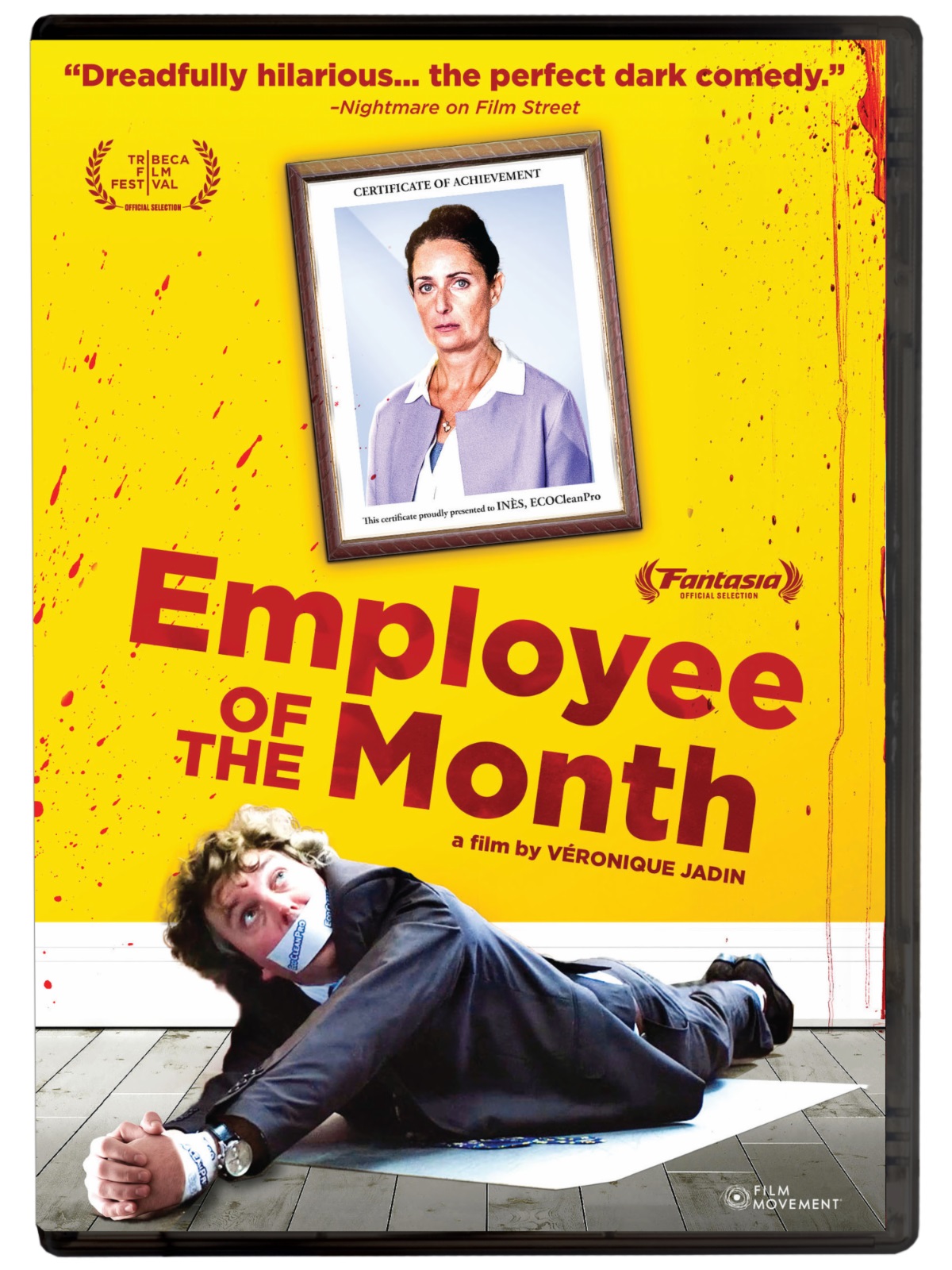
Late last month, Arrow Video re-issued Paramount Pictures’ 1971 WWII story, Murphy’s War on Blu-ray. The movie proved anything but successful for Paramount and its lead star, Peter O’Toole (Lawrence of Arabia, The Lion in Winter, The Stunt Man) when it debuted in 1971. Believe it or not, being so unsuccessful made (and makes) it an important part of Hollywood’s cinematic history, as critics Sheldon Hall and David Cairns make clear in their respective bonus commentaries included in the movie’s new home release. They will be discussed later here. Keeping in mind that importance, the unearthing of this otherwise forgotten movie by Arrow Video ultimately proves a positive addition to this year’s field of new TV and movie re-issues. Audiences will increasingly realize this as they take in the movie’s story, which will be discussed shortly. The story presented here is just one of the important aspects of the movie in its new BD presentation. It suffers, too, from a severe audio imbalance throughout its presentation. This does not doom the movie but makes one wonder if the imbalance was an issue in its original presentation, too. Each item noted here is key in its own way to the whole of Murphy’s War. All things considered, they serve to remind viewers of the importance of the movie’s place in Hollywood’s history, even being a lesser memorable movie.
Movies based on books and those centered on “The Greatest Generation” are among the most commonplace in Hollywood’s rich history. From the likes of The Longest Day to Patton to Midway, Stalag 17, and A Bridge Too Far and so many others, the list of great WWII epics is long to say the least. For all of the great movies out there that center on that era of history, there are just as many that have ultimately faded into the annals of Hollywood’s history and become forgotten. Late last month, Arrow Video re-visited just one of those forgotten movies when it re-issued Paramount Pictures’ 1971 flick, Murphy’s War on Blu-ray. Adapted from author Max Catto’s novel by the same title by screen writer Stirling Silliphant, the movie follows the exploits of its title character, the singularly-named Murphy. Played by O’Toole, Murphy is an Ahab-type character who is bent on vengeance against a crew of Nazi submariners who killed all of his ship mates along a South American river. In his attempts to avenge his fellow seamen, Murphy repairs and uses a British warplane to drop giant Molotov cocktails on the sub at one point. When that does not work, he goes even farther, using a barge to try to ram the sub. That ultimately fails, leading to the story’s climactic finale. The finale will be left for audiences to discover for themselves, but it is quite different between Catto’s novel and Silliphant’s screenplay.
The story is relatively straight forward and easy to follow as a result of that focused approach. At the same time, it suffers to a point because as both Cairns and Hall point out in their respective bonus interviews (again, which will be discussed later), the story ultimately suffers from an imbalance of being an action film and a character-driven human drama. Viewers who fully immerse themselves in the story will notice that imbalance what with the constant back and forth of the action sequences and the calmer, almost meditative scenes during which Murphy talks with the doctor Hayden (Sian Phillips – Dune, Clash of the Titans, I, Claudius) and Louis (Philippe Noiret – Cinema Paradiso, Topaz, The Postman). The change in the story’s mood between the noted scenes is stark to say the least and causes a certain sense of discomfort along the way. As Cairns and Hall each note in their discussions, this imbalance was in fact due to director Peter Yates and producer Michael Deely not seeing eye to eye on which approach the story should take. In other words, issues behind the scenes led the story’s overall feel to be somewhat disjointed.
Keeping all of this in mind, even with the external forces at work on the story, it is still relatively easy to follow. In a bizarre way, it actually plays into the story because it serves to show perhaps a certain imbalance in Murphy’s own mental state as he plots his revenge against the Nazis for their crimes. To that end, the overall story proves a point that makes the movie worth watching at least once.
While the story at the center of Murphy’s War makes it worth watching at least once, the movie is far from perfect. It suffers throughout its roughly hour and 47-minute run time from an imbalance in its audio. Viewers will find themselves constantly having to adjust the volume throughout the movie, turning it way up during the dialogue scenes and then back down during the action sequences. Whether this was the case in the movie’s original theatrical run is anyone’s guess. If it was and that was not addressed for its re-issue, then that shows even more why the movie failed. Audiences should not have to strain to hear dialogue and then only seconds later protect their eardrums when gunfire and explosions fill the story. To that end, the imbalance in the volume levels throughout the story do plenty to hurt the movie’s presentation.
The issues with the movie’s audio imbalance are problematic to say the very least. Audiences who can overlook the discomfort caused by that imbalance will find one more positive to the movie in its latest release. That positive is the bonus content that accompanies the movie. The most important of the bonuses are the new retrospective on the movie by critic David Cairns and the archived interview with Sheldon Hall. Each man discusses in his respective feature, everything addressed here. The men point out the problems that happened behind the scenes, including even how Yates and Deeley disagreed on the story’s finale, whether it should stick to the book or to Silliphant’s adaptation. Of course, in the end (no pun intended) Silliphant’s work won out. The result is that the movie becomes easily comparable to author Herman Melville’s classic novel Moby Dick. This is just part of what the men address went on behind the scenes. Each reveals that O’Tolle apparently had a negative reputation, but for all the negative things that happened behind the scenes, his behavior was the one thing that went right. Of course, that might have been thanks to the casting of Phillips opposite O’Tolle, according to each figure. Phillips was married to O’Toole at the time and as both men point out, she was brought in to keep an eye on him, not so much for her acting ability. One cannot help but laugh at this to a point, especially considering how much else went wrong behind the lens.
Speaking of things going wrong behind the scenes, the creative differences were not all that went wrong in the process of filming. Hall reveals in his archived discussion, the Nazi’s sub (which was a decommissioned American sub provided to the studio by Venezuelan officials – since the movie was filmed partially on site in Venezuela) was actually too large for the river where the principal photography was done. It apparently did in fact find itself stuck in the river because the river was not deep enough for the sub to actually fully dive.
On yet another note, the men also reveal that the cast and crew had to deal with a cruise liner that was not all that it appeared to be between shoots. That anecdote is a surprise in itself. Between these revelations and so much more, the discussions from Cairns and Hall offer so much deep insight into Murphy’s War. That insight leads one to wonder if Murphy’s War should have even been made. Since it was made though, it serves as an important reminder for other filmmakers (current and future) of what not to do when making a movie. The result is a movie that even as unsuccessful as it was, proves an important piece of Hollywood’s history because of its failure that is worth watching at least once.
Arrow Video’s recent Blu-ray re-issue of Paramount Pictures’ 1971 movie, Murphy’s War, is an important presentation that every true cinephile should see at least once. That is because the movie is proof that some books really do not belong on the big screen and simply that some movies simply should not be made. This is the case even despite a straightforward story that is relatively easy to follow. The story is rife with problems. Those problems are outlined in depth through the bonus content that accompanies the movie in its recent home release. Keeping that in mind, this movie is an important piece of cinema history because it is so imperfect. It makes the movie a presentation that audiences should see at least once.
Murphy’s War is available now from Arrow Video. More information on this and other titles from Arrow Video is available at:
Website: http://www.arrowfilms.com
Facebook: http://www.facebook.com/ArrowVideo
Twitter: http://twitter.com/ArrowFilmsVideo








